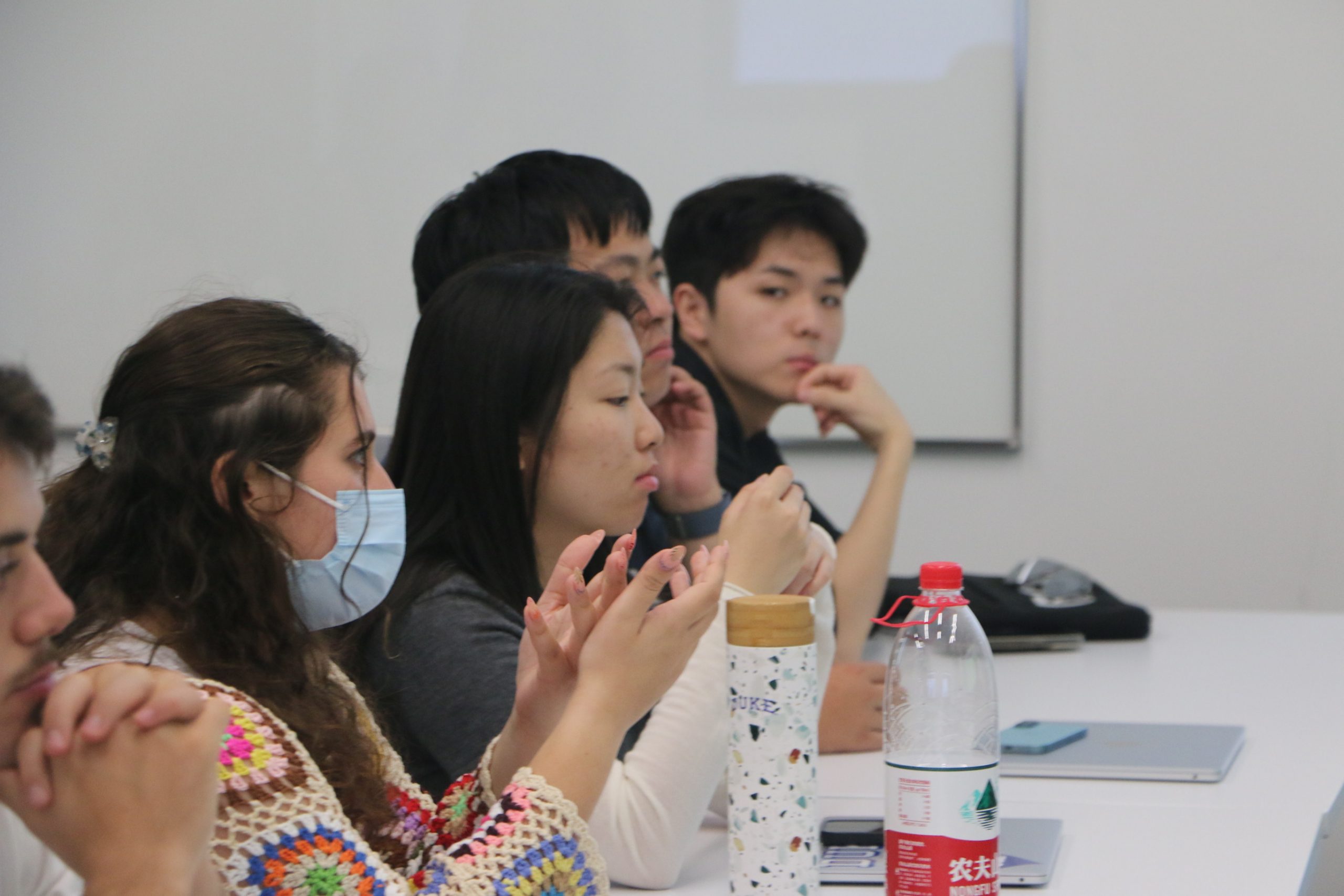By Zihan Chen, Class of 2026
On April 23, the CSCC hosted Dr. Xinhui Jiang for a seminar titled “The Unfinished Legacy: How Beijing’s Gender Quotas Reshaped Women’s Political Representation in China.” Dr. Jiang, an Assistant Professor of Political Science at Nanjing University, presented an insightful and empirically grounded talk examining the three-decade trajectory of gender quotas in Chinese politics, from their early roots in the 1995 Beijing World Conference on Women to their evolving implementation at subnational levels today.

Dr. Jiang began by contextualizing the 1995 Conference as a turning point that prompted formal commitments to increasing women’s political participation in China. She then detailed how both the Organization Departments and Women’s Federations began adopting formal targets to promote women’s representation in provincial and local People’s Congresses. Drawing on extensive fieldwork, interviews, and cadre appointment records, her research revealed notable patterns of uneven quota adoption across regions, differences in enforcement practices, and the roles played by key institutional actors in driving or resisting reform.

One of the most thought-provoking aspects of Dr. Jiang’s presentation was her analysis of the unintended consequences of quotas. While quotas have contributed to increased numerical representation of women in many areas, in some contexts they have also inadvertently reinforced tokenism—offering symbolic inclusion without meaningful influence. This raised important questions about the distinction between descriptive and substantive representation in Chinese politics.
The seminar concluded with a lively and intellectually rich discussion between Dr. Jiang and the audience. Students raised thoughtful questions and suggestions, including possibilities for comparative analysis with other post-socialist states and deeper connections to China’s policymaking across different historical periods, such as the pre-reform era and the post-pandemic context. The discussion also touched on how frameworks from other equity-based policy debates—such as slavery reparations—might inform reflections on gender quotas and the unintended consequences of well-meaning reforms. Dr. Jiang responded to each question with depth and clarity, offering nuanced explanations and drawing on both theoretical and empirical insights. Her thoughtful engagement encouraged further reflection and made the conversation one of the most active and rewarding parts of the seminar.



Dr. Jiang’s visit reflects CSCC’s commitment to supporting thoughtful discussion on evolving issues in Chinese politics and gender representation. Her research offered a grounded perspective on the complexities of implementing gender quotas, while the active participation from students highlighted the value of open, interdisciplinary exchange. Events like this provide an important space for engaging with policy challenges through both academic and practical lenses.



